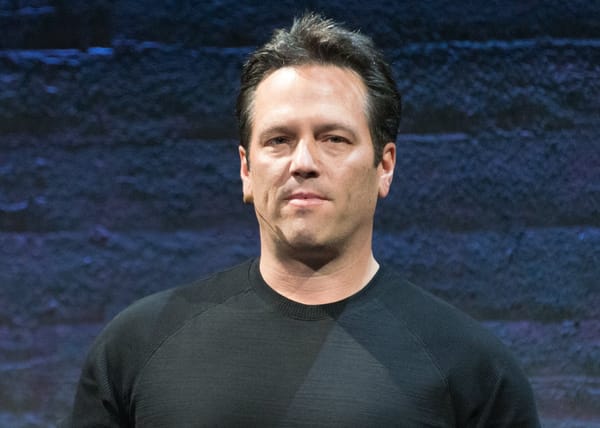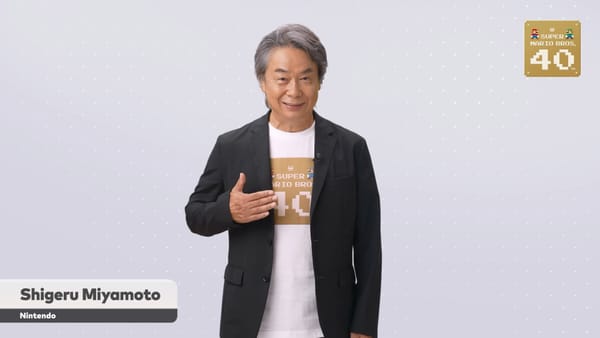My favorite games of 2024
Astro Bot, Metaphor and playable Zelda are among my top ten games of the year.
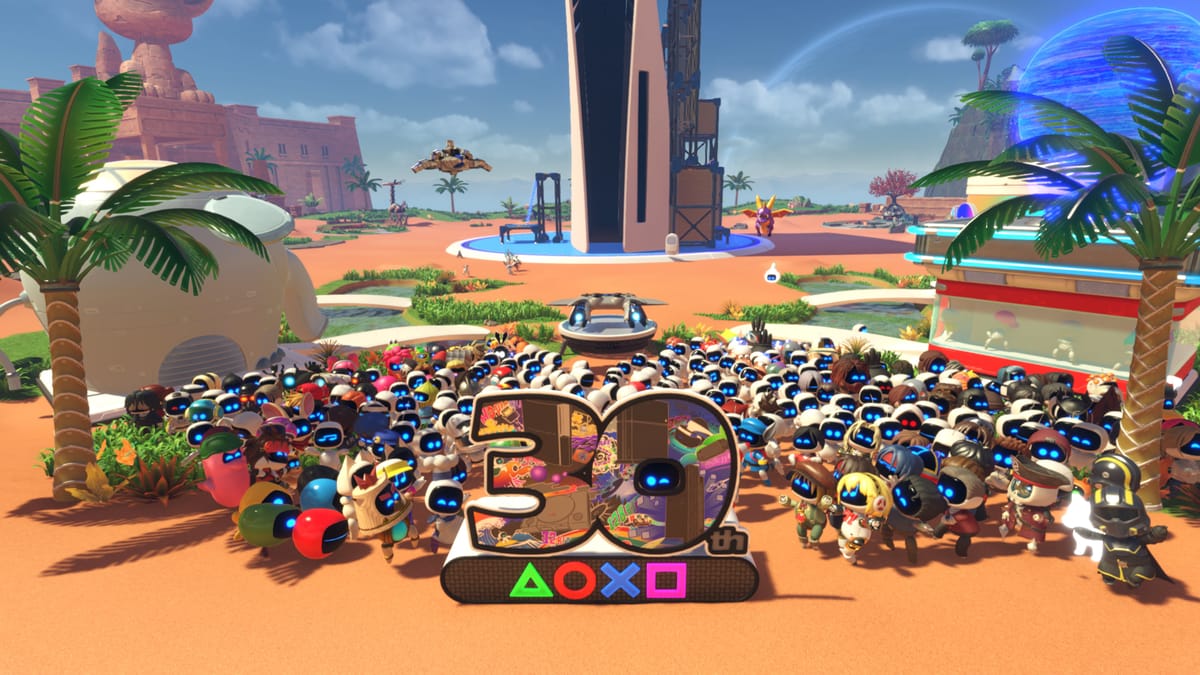
Before we get to the awards, I’d like to take a moment to reflect.
This hasn’t been an easy year; if anything it’s gotten progressively harder. But one thing I’m thankful for is that I’ve been able to sit down and really commit to writing regularly. I’ve had a newsletter or blog in various formats for decades now, but the last time I wrote with anything like this cadence was… uh… 2003.
One of my goals was to think a little less about what I had to write about and to focus on what I want to write about. I spend my working day worrying about trends, about SEO, about writing things that people want to read. But here, I wanted to focus on what I wanted to read; the little observations or ideas that I had that I didn’t think I was seeing anywhere else.
With that in mind, it has been so heartening to see others joining me on this journey: newsletter subscribers have tripled over the last month alone! I am so grateful to all of you for reading, whether on the site or the newsletter. Thank you so much, and here’s to many more posts in the year ahead.
Now, with that out of the way, a reminder of my (self-imposed) rules for this list:
- It must be a game released this year.
- No remasters; a remake only counts if it was a significant overhaul. For instance, the Final Fantasy VII Remake series would count, but Paper Mario: The Thousand Year Door on Switch does not.
- These are of course my personal favorites, so if I didn’t play a game it won’t be on the list. (I did not play FFVII Rebirth.)
- The system listed is the one I played the game on; it’s not necessarily all the platforms it’s available for.
Before we get to the top ten, a few other awards first…
Style over Substance Award
The Plucky Squire
All Possible Futures, PlayStation 5
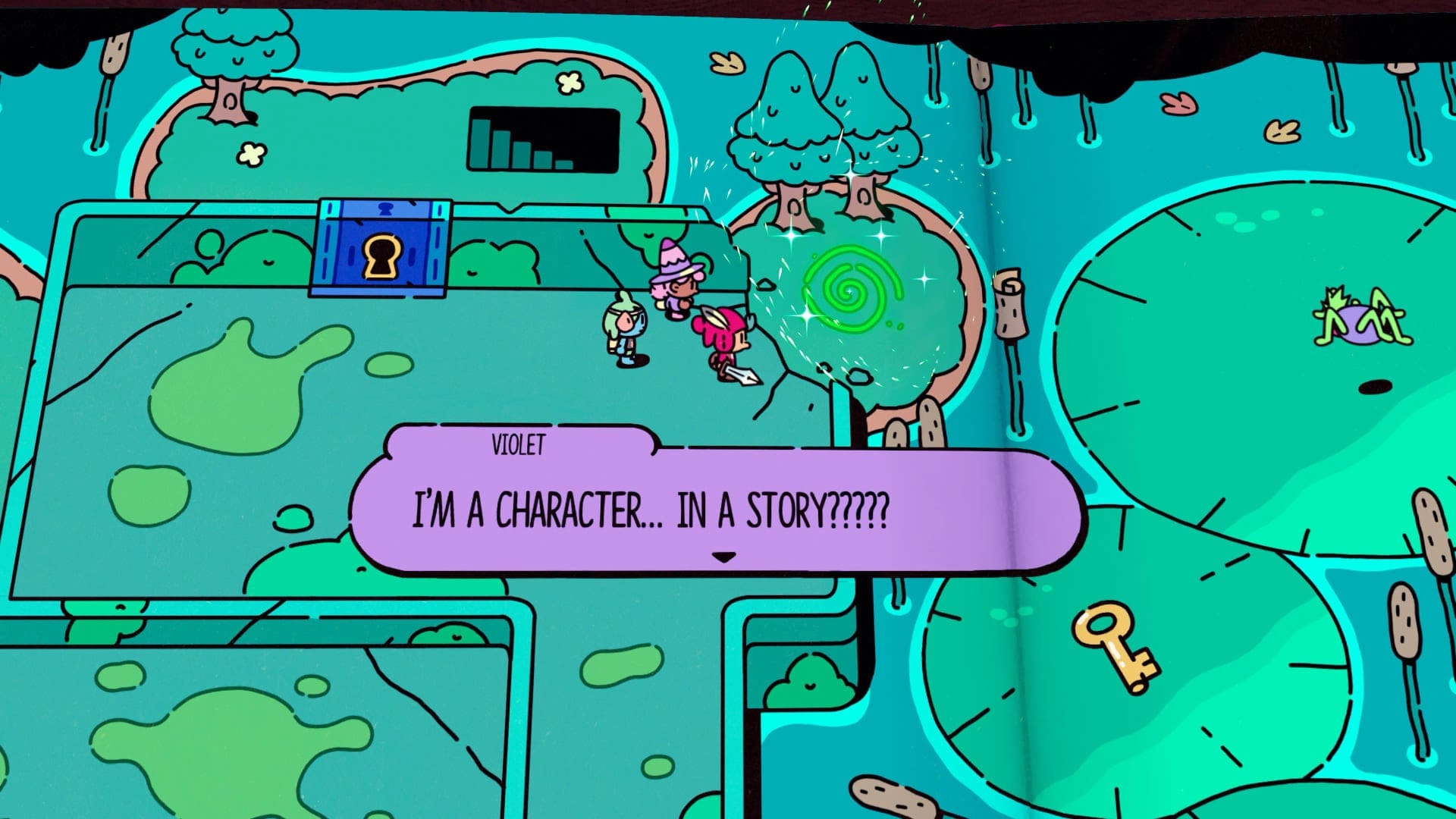
This might sound like an insult, but it is not. Yes, The Plucky Squire is very much a case of style over substance, but this game is so stylish that it almost landed on my top ten on that basis alone. The Plucky Squire is an adventure game taking place inside a (gorgeous) storybook; that’s cool enough, but the titular Squire can also leap out of the page and into the real world, switching from a 2D adventure to a 3D one. The game itself is pretty basic and straightforward, bordering on heavy-handed at times. But it’s short enough that, for the most part, you can focus on the sheer delight of the aesthetics.
FOMO Award for Best Game I Didn’t Play
Indiana Jones and the Great Circle
Machine Games, Xbox Series X
I was an Xbox Live subscriber for 21 years. I’ve been a Game Pass subscriber for at least 6 years. But I haven’t actually used my Xbox this year, and I barely played any Xbox games last year. And so, when I took a critical look at my expenses, canceling Game Pass this year seemed a no-brainer. And then Microsoft released Indiana Jones and the Great Circle, a game people are praising as one of the best of the year and one I’d love to have played — if I had Game Pass.
Honorable Mention
Pokémon Trading Card Game Pocket
The Pokémon Company, iOS
It’s wild that I’ve been a huge Pokémon fan for decades, but only at the age of 43 did I notice that Pokémon cards are… great, actually? The art on each card is so varied and fun! I love the art so much that it’s the entire reason I play — I don’t battle anyone, all I do is open my two free packs of cards every day to collect more good-looking cards. (It helps that the way you open packs with a swipe and a little crinkling sound is so wonderfully tactile that it’s actually a little addictive itself.)
Ten
Nintendo World Championships: NES Edition
Nintendo, Switch
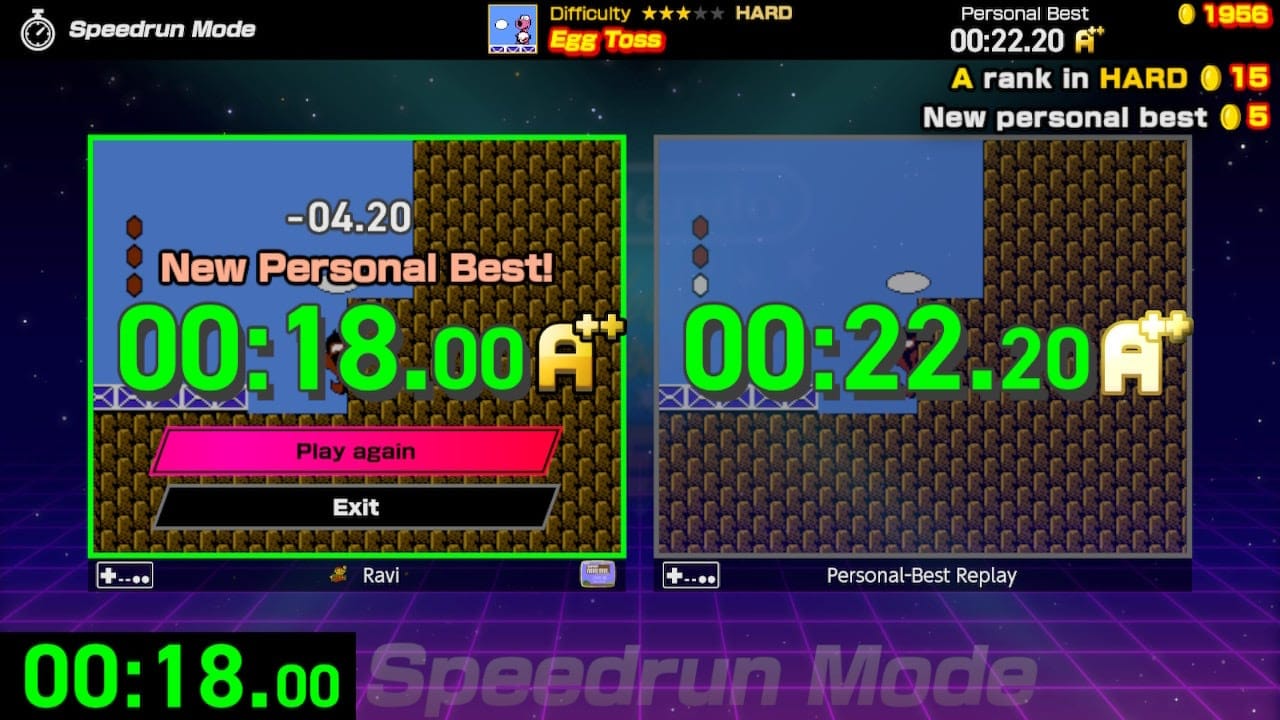
This game is basically Speedrunning 101. There are bite-sized chunks of 13 classic NES games, and you have to race through as quickly as possible. They range from the super short (collect the first mushroom in the first level of Super Mario Bros.) to longer (clear the first dungeon in The Legend of Zelda). There’s a split screen so you can measure your progress against your fastest runs; learning from your previous run, finding ways to shave off time and go that little bit faster is a fun challenge. What elevates it is that there’s an online competition every weekend: it picks out a few of those challenges for you to try, then on Monday stacks up your times against the rest of the world.
It is admittedly undercooked — so much more could and should have been done with leaderboards, with multiplayer, with teaching advanced techniques — but I love a game that becomes a routine, and for a few months I actually looked forward to Mondays just to see how I did.
Nine
Kind Words 2
Popcannibal, Steam Deck
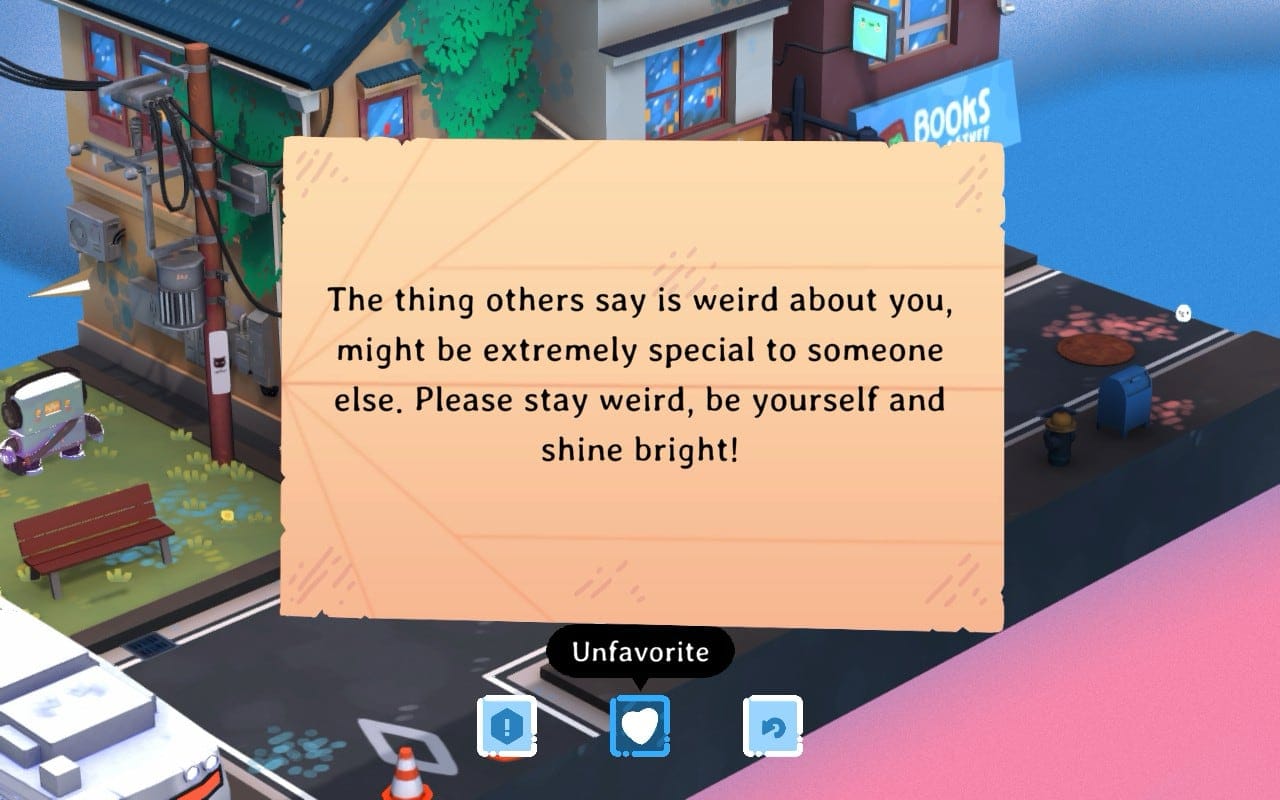
I won’t sugarcoat it: it’s been a rough year, especially these last few months. But Kind Words 2 was exactly what I needed. It’s one of those games that isn’t exactly a game; it’s an interactive experience where you hear the (anonymized) concerns and troubles of real people and you reply with encouraging notes. I missed the original when it came out five years ago, but frankly, even if I had played it, it wouldn’t have made the same impact on me — I’d probably have seen it as a little novelty, nothing more. I wasn’t ready for it then. I am now, and I am so grateful it exists.
Eight
Tetris Forever
Digital Eclipse, PlayStation 5
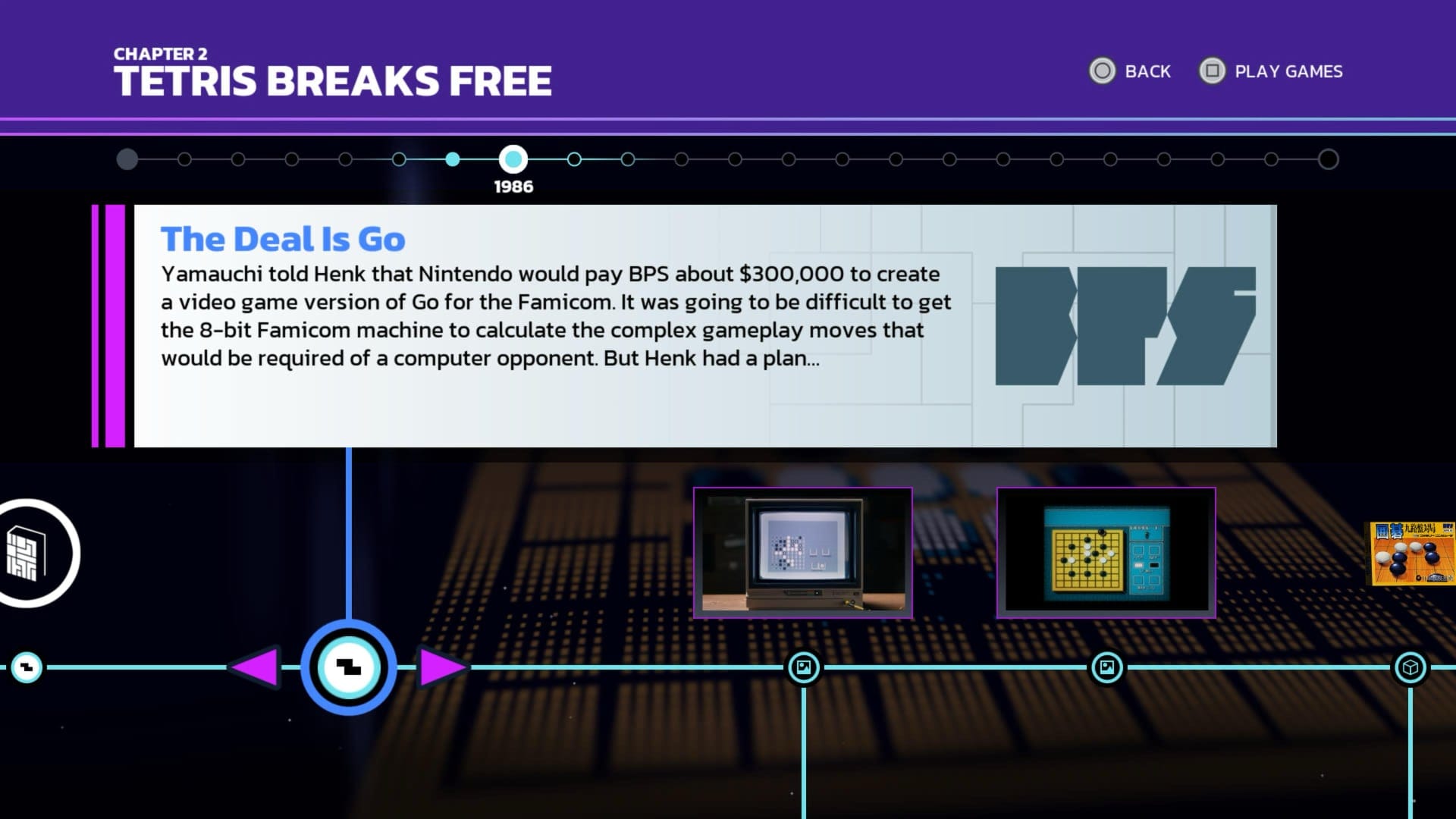
Another interactive history lesson from Digital Eclipse, mixing design documents, documentary-style videos and playable demos to tell the story of one of the greatest games of all time. The history of Tetris is fascinating enough in its own right, but actually getting to play the very first version of it — released for the Soviet Elektronika 60 computer, with blocks formed by square brackets like this [] — is really, really cool. As I said about last year’s (also brilliant) The Making of Karateka: this might not be a game, but it’s also something that’s only really possible as a game.
Seven
New Star GP
New Star Games, PlayStation 5
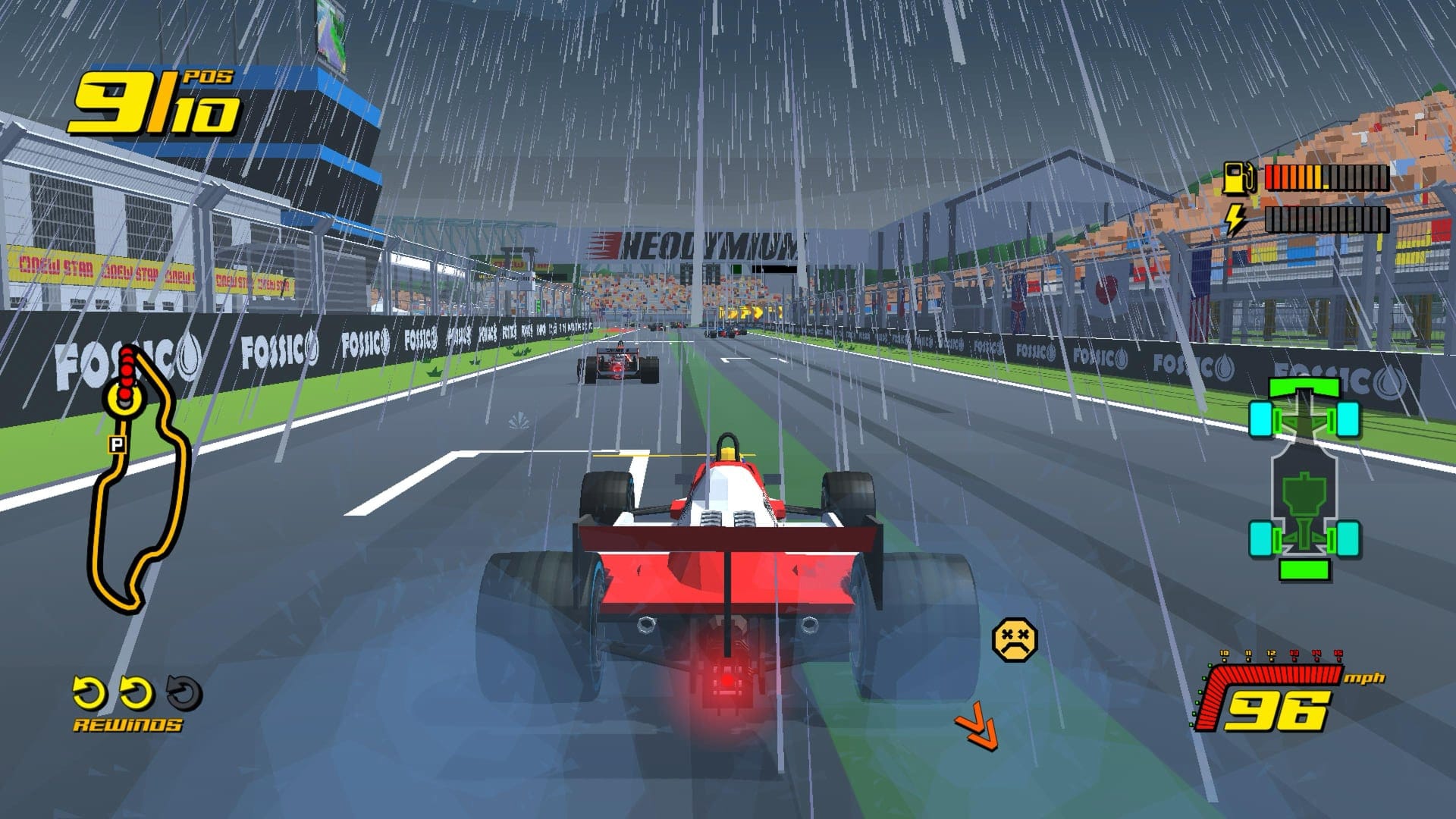
Come for the Virtua Racing graphics; stay for a surprisingly deep career mode. New Star GP is, in some ways, the perfect video game distillation of Formula 1 racing. You can tinker with your car and build a creative pit strategy and it’ll actually make a difference, despite the races being bite-sized. It feels like a glimpse at an alternate future where arcade racers managed to add depth and career modes while keeping their core racing feel intact.
Six
Rise of the Ronin
Team Ninja, PlayStation 5
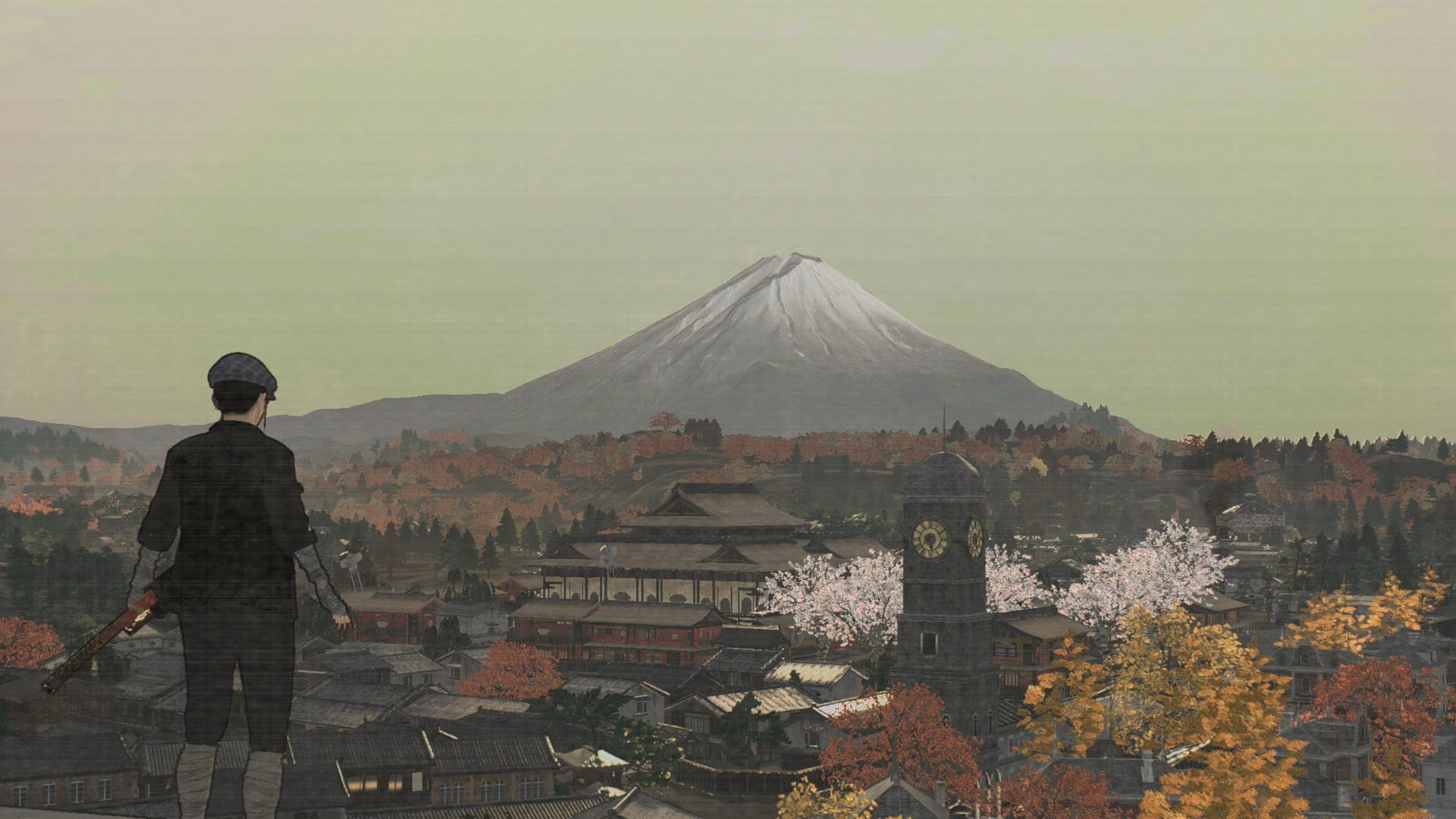
I love that Rise of the Ronin doesn’t take itself too seriously. It’s an open-world adventure set in 19th century Japan, a time when Western influence was growing and pushing the country to open up to foreign trade. That’s a real period in Japan’s history; Ronin is full of references to actual events and historic figures… but it also has a bad guy with a mechanical arm. History is a backdrop, but not a barrier: Ronin’s focus is on being fun first. So you can grapple a building, launch yourself into the sky and glide over 19th century Japanese towns — and then drop down to take out an enemy, like an old-timey ninja Batman.
Five
Star Wars Outlaws
Massive, PlayStation 5
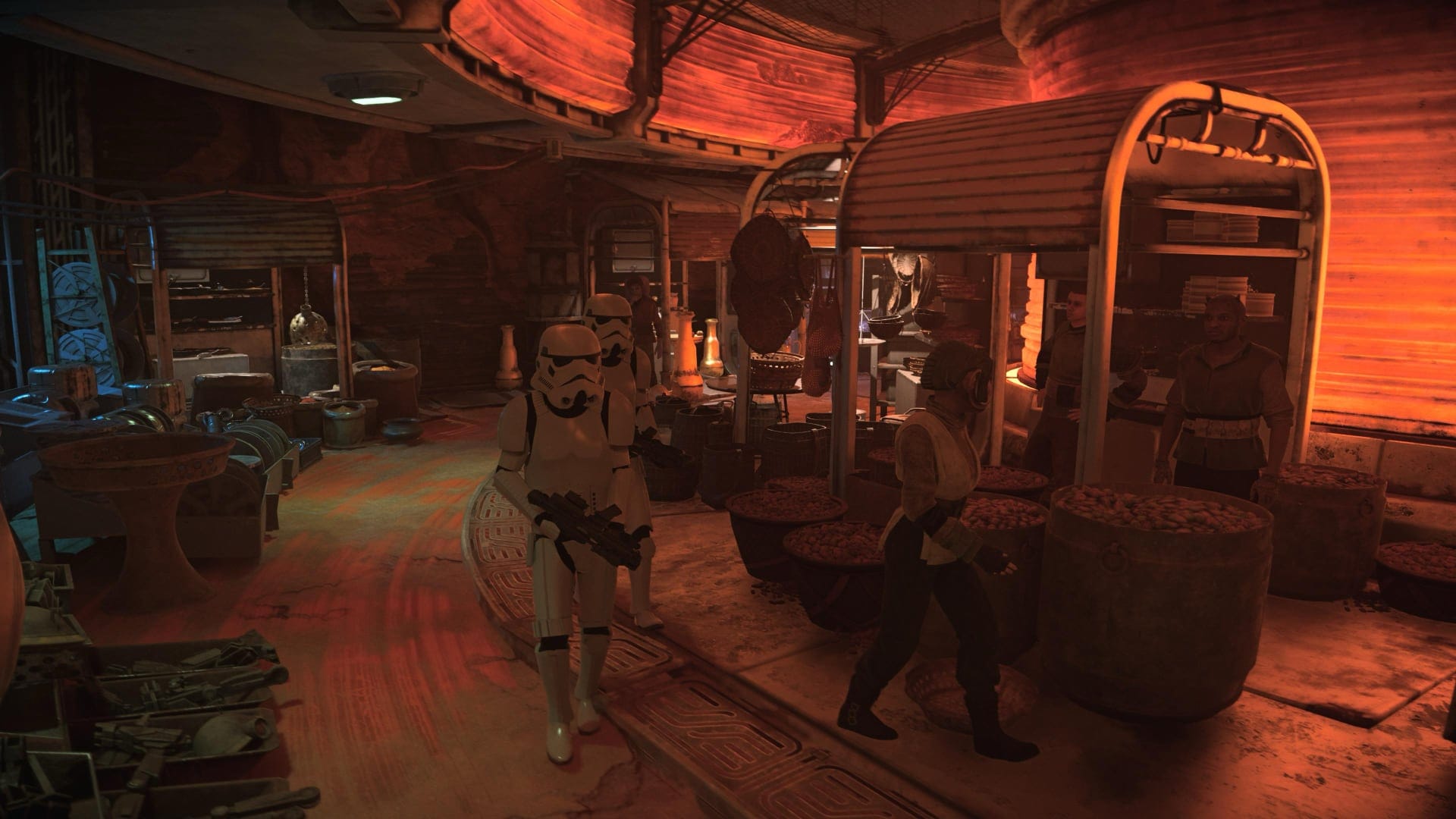
It’s the stormtroopers that got me. There have been so many Star Wars games over the years, but Outlaws has, by far, the best-looking stormtroopers of the lot. This open world adventure nails the look, and more impressively, the feel of the franchise: the cantinas, in particular, manage to capture the idea of the Mos Eisley cantina while being distinct and not a soulless recreation (cough, Force Awakens). I had my issues with the way the missions work, but I am so impressed with the world they’ve built. It’s a world I’m happy to spend time in because it nails Star Wars in a way that an old fan like me can really appreciate.
Four
The Legend of Zelda: Echoes of Wisdom
Nintendo & Grezzo, Switch
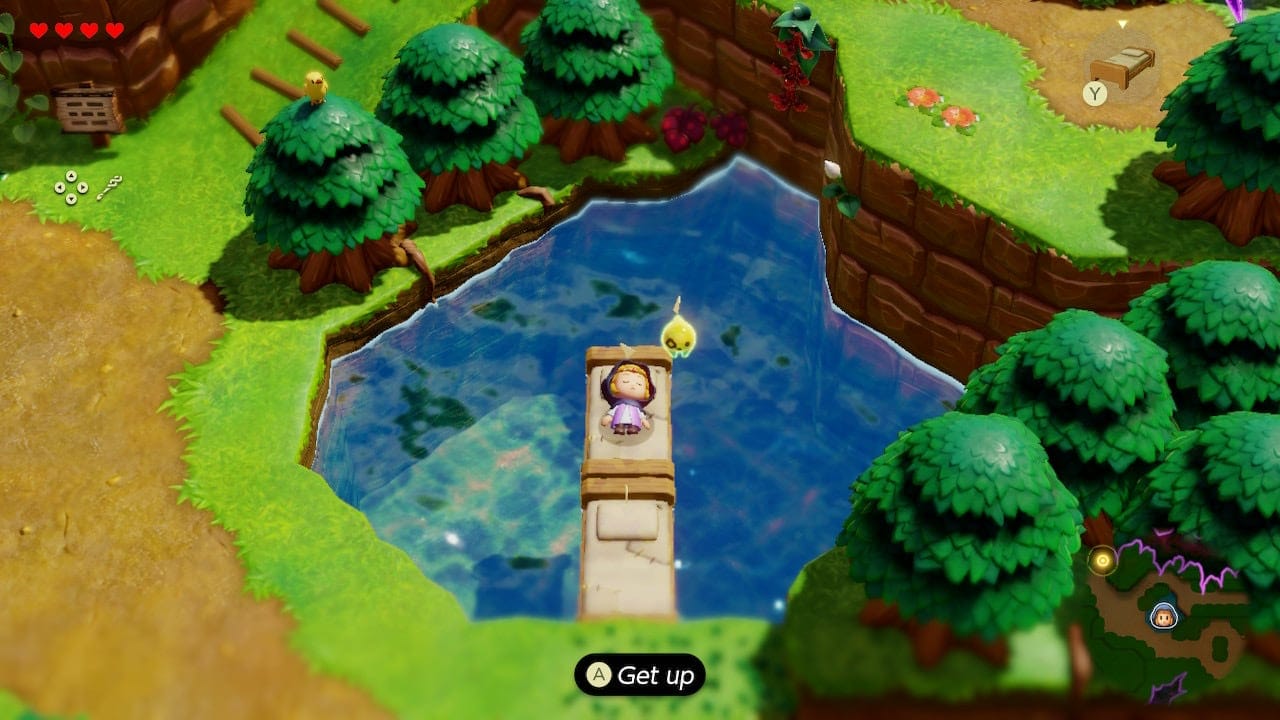
A fever dream of a project made real: the Link’s Awakening remake art style, an expanded Hyrule from Link to the Past, the openness of Tears of the Kingdom… oh, and this time, you can actually play as Zelda? Sold.
Echoes of Wisdom’s hook is that, instead of using a sword, Zelda “fights” by creating echoes of monsters or objects she’s previously defeated. Puzzles are solved the same way: if you can’t cross a gap, summon a few boxes as a makeshift bridge. Eventually, you also get the ability to wield a sword for brief periods. But that always felt a bit like cheating; I was so all-in on the echoes mechanic that, frankly, I probably made the game harder for myself by insisting on fighting bosses with a murder of crows instead of whipping out the sword as the game intended. That I had the choice at all, though, speaks to how much I love the new-found focus on player agency and creativity in the Zelda series.
Three
Metaphor: ReFantazio
Studio Zero, PlayStation 5
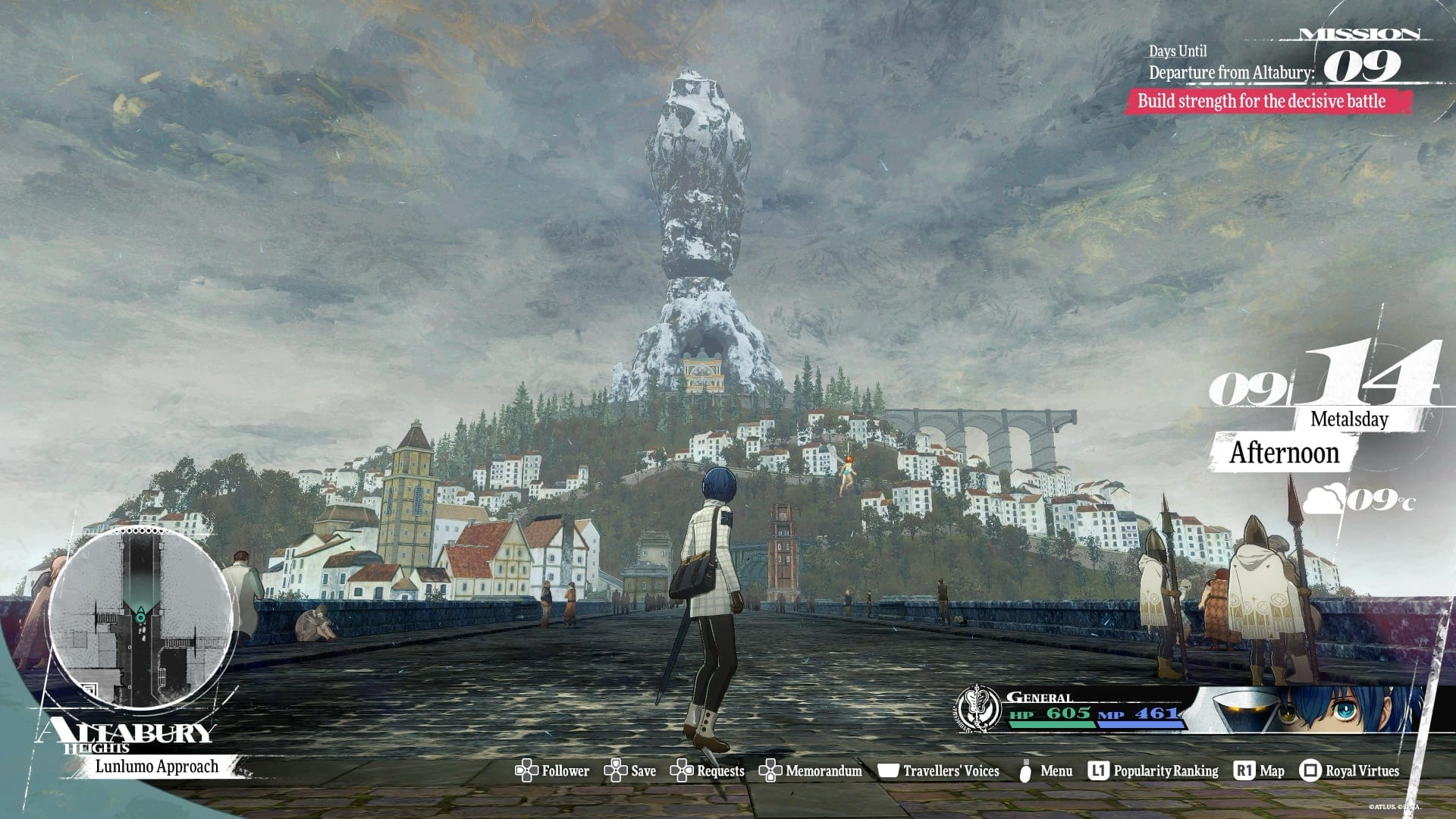
I almost didn’t buy this game. I love the Persona series of role-playing games, but I figured that love was rooted in the contemporary Japanese setting. So I was ready to skip the Persona team’s new game set in a fictional fantasy world, but I’m glad I didn’t. I found Metaphor’s world engrossing and the idea of traveling across the country to gain support in an election a really unique (and timely) hook. The mechanics are an evolution of the Persona series, taking some concepts further and fixing others… even if it wasn’t always for the best. Shout out as well to the fantastic English dub — it’s not every day you hear Scouse accents in a game.
This looks, sounds and feels like no game I’ve ever played. In fact, it doesn’t look like the sort of game that I’d like. But Metaphor is executed so well on all fronts that I was completely hooked from start to finish.
Two
Like a Dragon: Infinite Wealth
RGG Studio, PlayStation 5
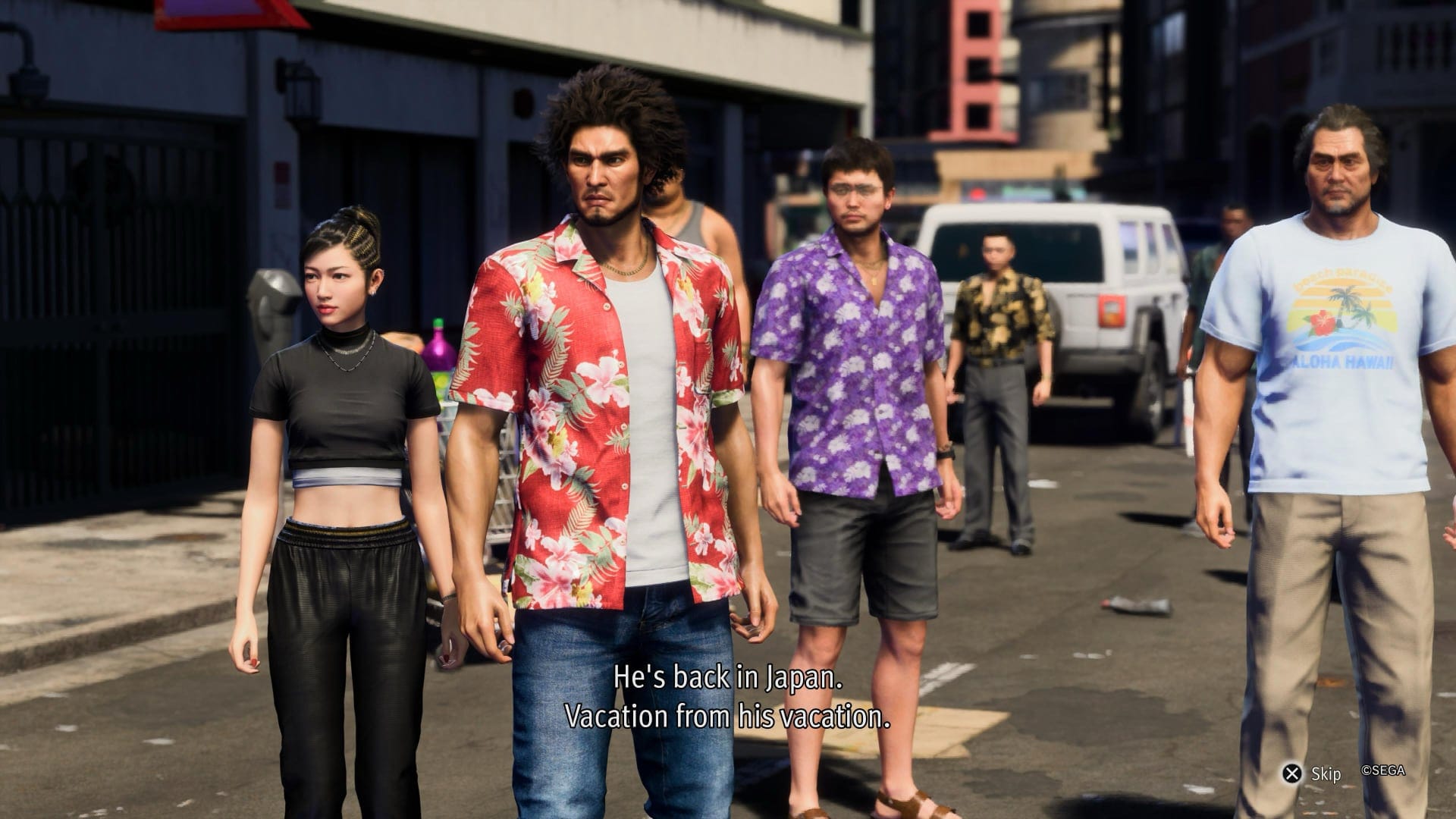
Two turn-based RPGs from two different Sega developers, but I’m not sure many people would put Metaphor behind Infinite Wealth. And I get it: Metaphor’s got a better battle system, better story and deeper mechanics all around.
But… Infinite Wealth is a deeply endearing game, so chock-full of ideas and stuff to do that it’s easy to forgive the things that aren’t right in favor of the things that are so, so right. The friendships of Ichiban and his party are a joy; Kiryu’s return was handled a lot better than I thought; the insane Animal Crossing-esque Dondoko Island minigame is hilarious; and it features maybe the best substory in the history of Yakuza’s incredible substories. (All I’ll say is it’s the one with snow.)
It remains quite funny to me that the series about gangsters is actually one of the most positive in all of gaming. Yakuza has always been about being comfortable with who you are, and it’s hard not to get swept up in Ichiban’s boundless enthusiasm and love for his friends.
One
Astro Bot
Team Asobi, PlayStation 5
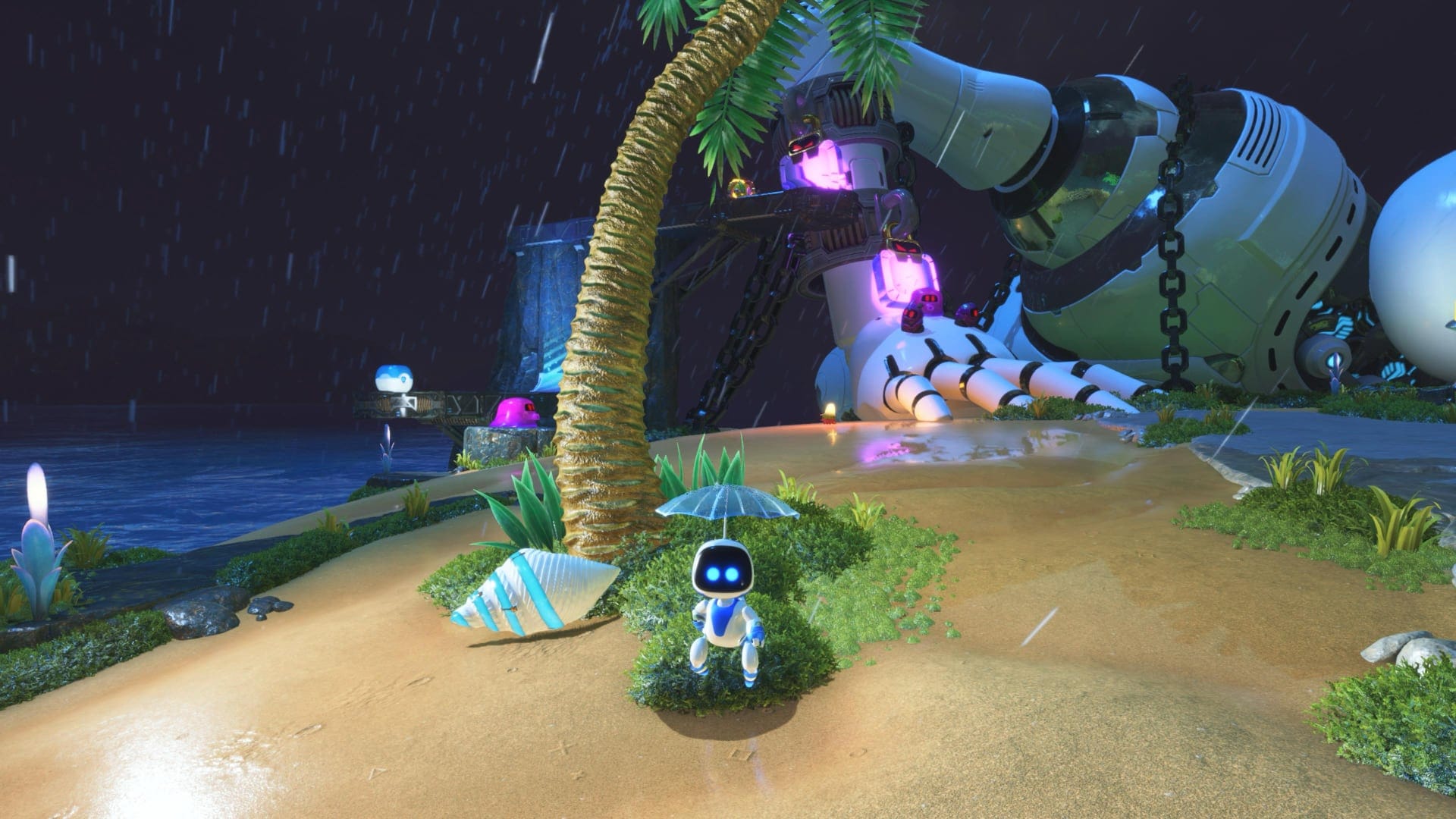
I have a basic rule of thumb: if a game makes it fun just to move around the world, it’s going to be a great game.
The Mario series has this. The physics in those games are so finely tuned; Mario has a certain weight and momentum to him that has just the right mix of whimsy and jeopardy.
Astro Bot may be Sony’s answer to Mario, but Astro’s physics aren’t like that – there isn’t quite the same weight. But he's still fun to move around because his world has so much texture. It literally feels great. His footsteps make little pingy sounds on metal, accompanied by little jabs of feedback on the controller. When it rains, an umbrella pops of out his head, with the patter of drops matched by a patter of little haptic thumps in your hand.
Astro’s world is so full of things to hit, to touch, to bash about. Smack open any crate and whatever flies out — whether apples, metal trash, even treasure — explodes in an unreal, cartoonish abundance. There is just so much stuff everywhere; stuff raining down on you, stuff to push and kick and fling about with your spin attack. For the most part, that stuff serves no real purpose in the game; which actually only makes it more admirable to include and compelling to play around with.
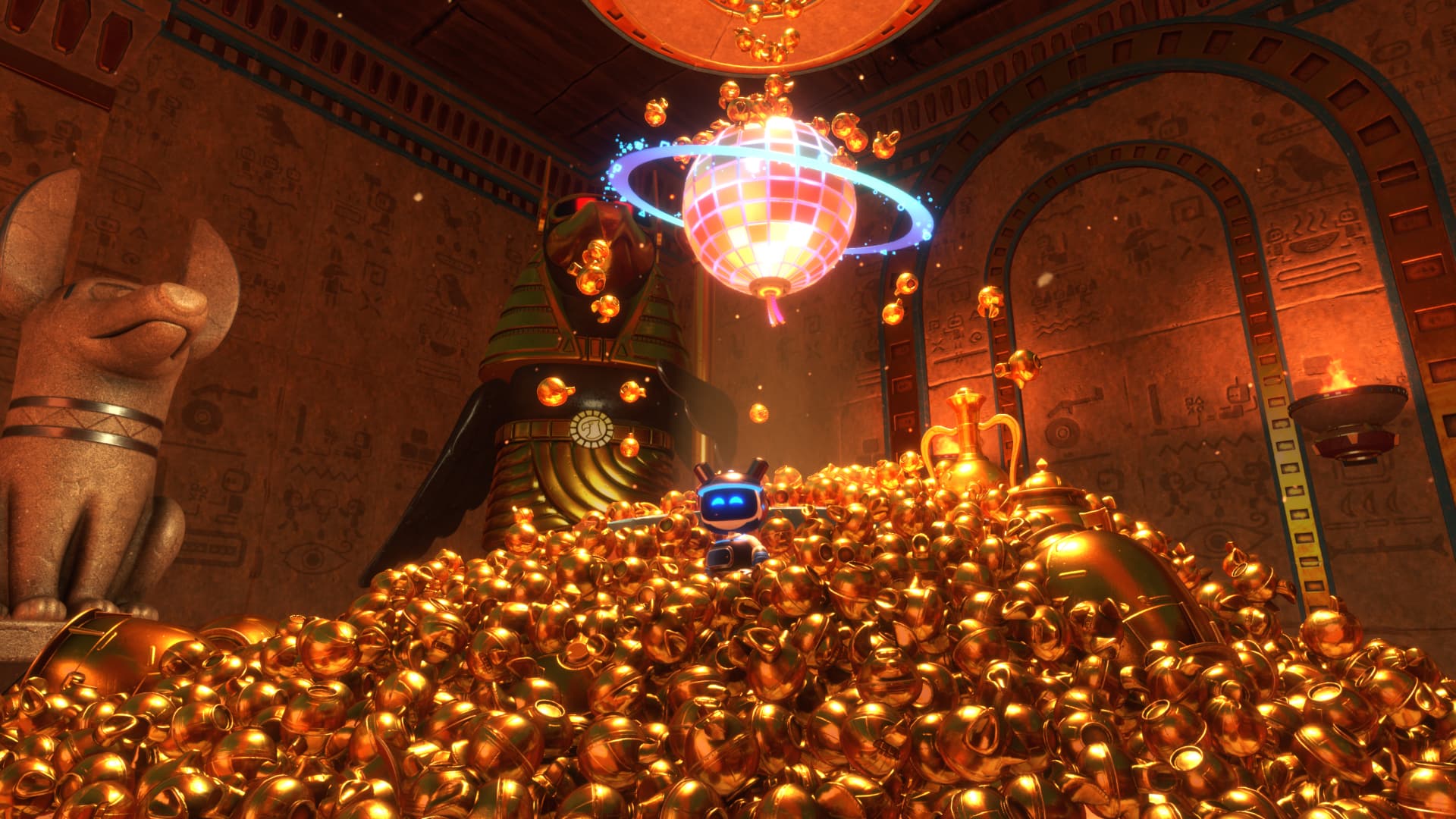
By saying this much about Astro Bot and not discussing the core gameplay you might think it’s lacking, but it is not. Almost every stage has its own little gimmick and power-up; I love how they don’t linger too long or overstay their welcome. They’re introduced, explored and tossed aside quickly to keep the pace and variety going. The soundtrack is incredible. Bosses are huge and substantial; the bots you rescue that are themed to classic PlayStation games always elicited a satisfying grin I recognized them.
In fact, I did a lot of smiling in this game. The dancing mushrooms made me smile. The casino level’s time-freezing power-up made me smile. Figuring out an obscure PlayStation reference made me smile.
Astro Bot is joy unconfined, and is my game of the year.
All the games I played this year
(Games completed are in bold)
Animal Well, Astro Bot, Casual Birder, Crankin’s Time Travel Adventure, Endless Ocean Luminous, Hillslide, Kind Words 2, The Legend of Zelda: Ocarina of Time, The Legend of Zelda: Majora’s Mask, The Legend of Zelda: Echoes of Wisdom, Like a Dragon: Infinite Wealth, Maniac, Luigi’s Mansion 2 HD, Mario & Luigi: Brothership, Mars After Midnight, Metaphor: ReFantazio, New Star GP, Nintendo World Championships: NES Edition, Paper Mario: The Thousand-Year Door (Switch), The Platform 8, The Plucky Squire, Pokémon Scarlet DLC & Epilogue, Pokémon Trading Card Game Pocket, Princess Peach: Showtime!, Resonant Tale, Rise of the Ronin, Root Bear, Shadows of Doubt, Shashingo: Learn Japanese with Photography, Star Wars: Dark Forces Remaster, Star Wars Outlaws, Super Mario World, Super Mario 3D World, Test Drive Unlimited Solar Crown, Tetris Forever, Tiny Glade, Whitewater Wipeout, Xenosphere, Yakuza Kiwami (Switch), Yellow Taxi Goes Vroom, Zero Zero: Perfect Stop.


